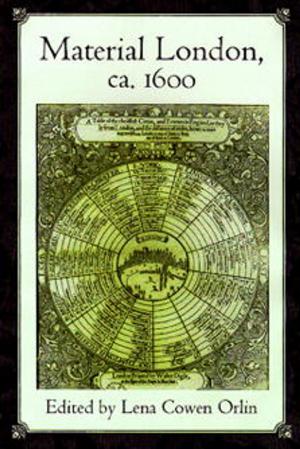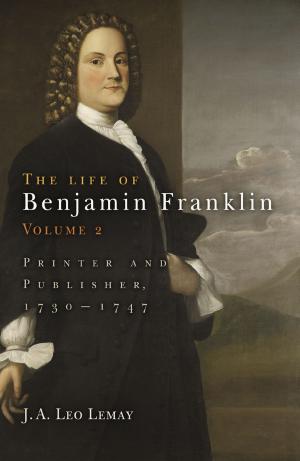Uncommon Tongues
Eloquence and Eccentricity in the English Renaissance
Fiction & Literature, Literary Theory & Criticism, British| Author: | Catherine Nicholson | ISBN: | 9780812208801 |
| Publisher: | University of Pennsylvania Press, Inc. | Publication: | November 21, 2013 |
| Imprint: | University of Pennsylvania Press | Language: | English |
| Author: | Catherine Nicholson |
| ISBN: | 9780812208801 |
| Publisher: | University of Pennsylvania Press, Inc. |
| Publication: | November 21, 2013 |
| Imprint: | University of Pennsylvania Press |
| Language: | English |
In the late sixteenth century, as England began to assert its integrity as a nation and English its merit as a literate tongue, vernacular writing took a turn for the eccentric. Authors such as John Lyly, Edmund Spenser, and Christopher Marlowe loudly announced their ambitions for the mother tongue—but the extremity of their stylistic innovations yielded texts that seemed hardly English at all. Critics likened Lyly's hyperembellished prose to a bejeweled "Indian," complained that Spenser had "writ no language," and mocked Marlowe's blank verse as a "Turkish" concoction of "big-sounding sentences" and "termes Italianate." In its most sophisticated literary guises, the much-vaunted common tongue suddenly appeared quite foreign.
In Uncommon Tongues, Catherine Nicholson locates strangeness at the paradoxical heart of sixteenth-century vernacular culture. Torn between two rival conceptions of eloquence, savvy writers and teachers labored to reconcile their country's need for a consistent, accessible mother tongue with the expectation that poetic language depart from everyday speech. That struggle, waged by pedagogical theorists and rhetoricians as well as authors we now recognize as some of the most accomplished and significant in English literary history, produced works that made the vernacular's oddities, constraints, and defects synonymous with its virtues. Such willful eccentricity, Nicholson argues, came to be seen as both the essence and antithesis of English eloquence.
In the late sixteenth century, as England began to assert its integrity as a nation and English its merit as a literate tongue, vernacular writing took a turn for the eccentric. Authors such as John Lyly, Edmund Spenser, and Christopher Marlowe loudly announced their ambitions for the mother tongue—but the extremity of their stylistic innovations yielded texts that seemed hardly English at all. Critics likened Lyly's hyperembellished prose to a bejeweled "Indian," complained that Spenser had "writ no language," and mocked Marlowe's blank verse as a "Turkish" concoction of "big-sounding sentences" and "termes Italianate." In its most sophisticated literary guises, the much-vaunted common tongue suddenly appeared quite foreign.
In Uncommon Tongues, Catherine Nicholson locates strangeness at the paradoxical heart of sixteenth-century vernacular culture. Torn between two rival conceptions of eloquence, savvy writers and teachers labored to reconcile their country's need for a consistent, accessible mother tongue with the expectation that poetic language depart from everyday speech. That struggle, waged by pedagogical theorists and rhetoricians as well as authors we now recognize as some of the most accomplished and significant in English literary history, produced works that made the vernacular's oddities, constraints, and defects synonymous with its virtues. Such willful eccentricity, Nicholson argues, came to be seen as both the essence and antithesis of English eloquence.















